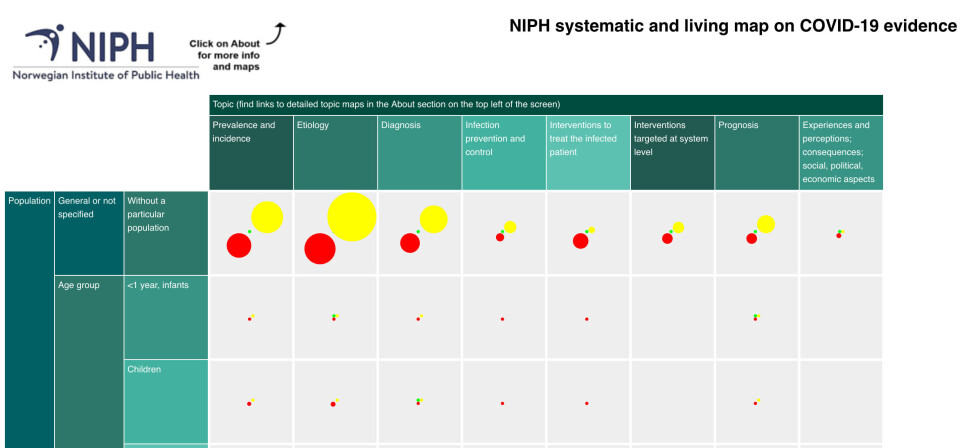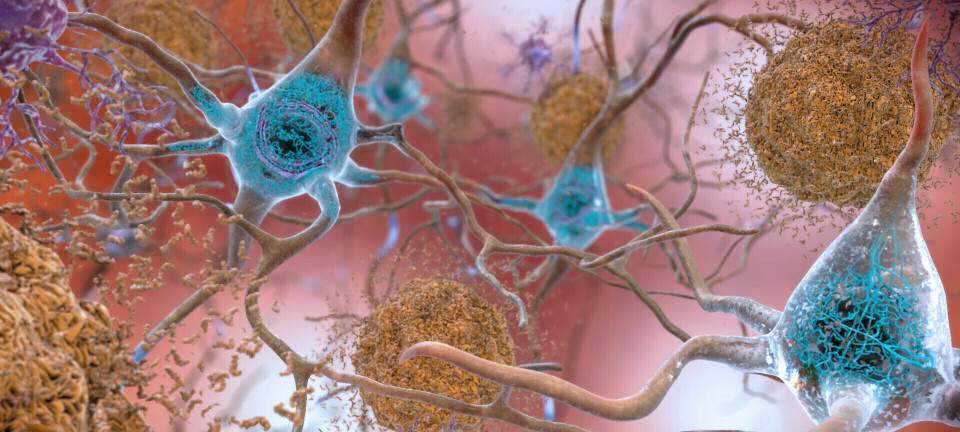
– A plethora of single studies, many fairly small and of diverse quality, makes the need for systematic reviews greater than ever. The COVID-19 evidence map will hopefully support the production of such reviews, says editor Magne Nylenna.
Foto:Norway: Worldwide COVID-19 visual evidence map aims at including all published research
– Decision makers all over the world have an urgent need for reliable, quality assessed information on COVID-19, says editor of the COVID-19 evidence map, Magne Nylenna.
Denne artikkelen er mer enn fem år gammel.
– The number of scientific reports and publications increases rapidly. It is almost impossible to get an updated overview even within a special field of interest, says Magne Nylenna.
Nylenna, a professor of community medicine at the University of Oslo, Norway, is the editor of the new COVID-19 evidence map. The map is developed by the Norwegian Institute of Public Health (NIPH), in two weeks only.
– Regular literature searches are required. A sophisticated and detailed classification system combined with a visual map presentation gives a unique potential for finding the exact research someone is looking for, says Nylenna to the Norwegian independent health newspaper Dagens Medisin (Medicine Today).
– A plethora of single studies, many fairly small and of diverse quality, makes the need for systematic reviews greater than ever. The COVID-19 evidence map will hopefully support the production of such reviews.
– Thus it contributes to more evidence based decisions both on preventive issues at a population level and in the treatment of individual patients, says Nylenna.
The map provide an overview of scientific publications on COVID-19 categorized and parsed into more specific subgroups, providing quick access to specific topic-relevant publications.
As a result, the map also identifies research gaps, possibly guiding further research efforts, according to the NIPH.
The NIPH will conduct literature searches daily or every other day in PubMed. They will then supplement the searches with material retrieved by searches performed by organizations such as WHO, CDC, and others.
As far as the number of included research papers, the map now includes 1000 articles. Within the next two weeks, the NIPH aims to include all published COVID-19 research globally.
















